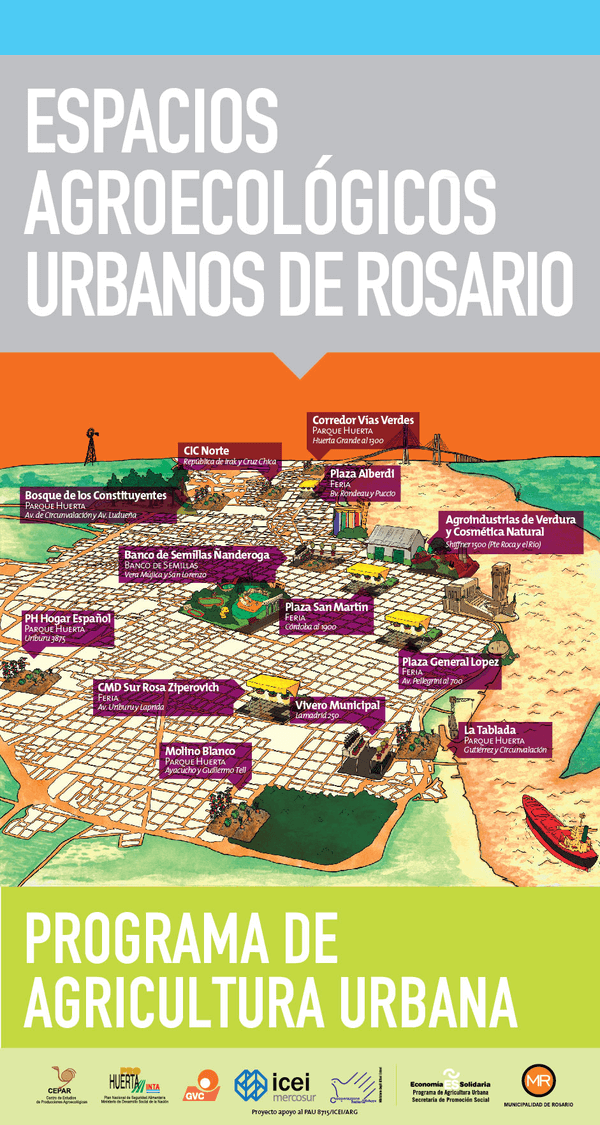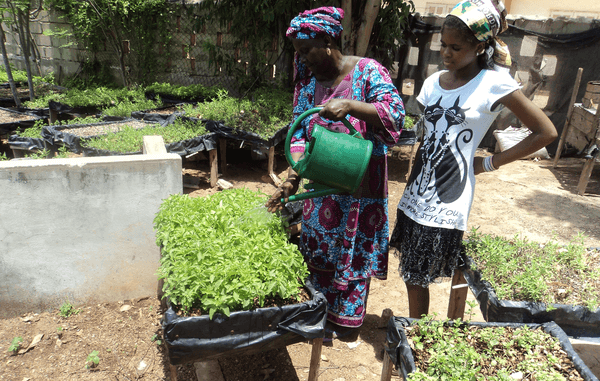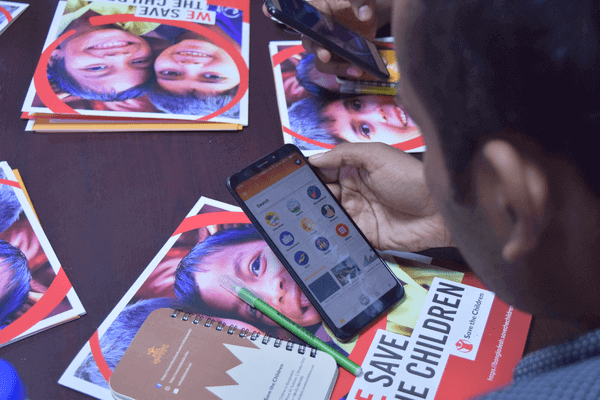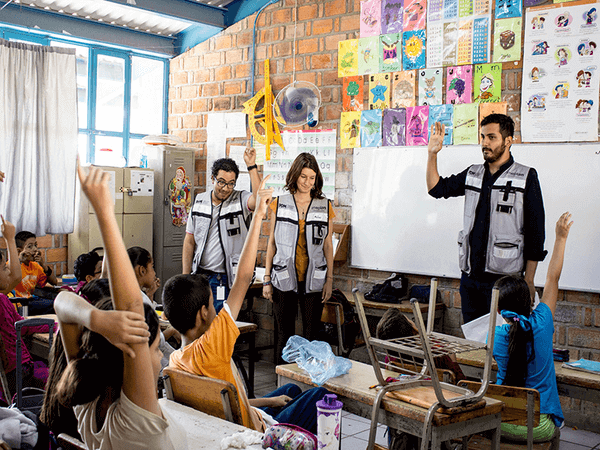In February 2002, the main steps of the UAP were taken. In September 2002, the first weekly garden fair to sell vegetables was launched to give the productive families a chance to receive a space on their own to start the commercialisation of their products. In November 2002, the project "Optimising Vacant Land Use for Urban Agriculture,” co-ordinated by the Urban Management Programme of the United Nations, began. It led to the advancement of the process of obtaining secure tenancy of vacant land for productive groups. In May 2003, the first food processing micro-plant, with which trained and organised groups can give added value to their production, was inaugurated. In December 2003, the municipal government changed, but the UAP continued. Over the years, the IDRC (International Development Research Centre) and the McGill University of Canada helped with technical assistance and training to develop more spaces to produce vegetables (gardens) around new areas of public housing projects by recovering degraded soil. Examples for the new gardens are the “La Tablada” – established in May 2007 –, the “Molino-Blanco-Las-Flores” – established in 2006 – and the “Bosque de los Constituyentes”.
During the phase of implementing the UAP, the main task was to strengthen the food production and commercialization. The most essential instruments to strengthen the food production are workshops to train the unemployed people in technical and practical knowledge. With the help of technicians and promoters of the UAP, a city network of urban producer groups was set up, producers were trained in management and project formulation, technical assistance was thought and quality seed and compost was provided. The large number of beneficiaries, who participated in the workshops, afterwards fulfilled the roll of promoters and educators at home.
Instruments to strengthen the commercialization are workshops on food safety and hygiene, product quality control, the establishment of farmers markets, and home delivery schemes in the community of Rosario. The farmers markets are validated by the general population because the productive groups successfully present their products of high quality with continuity. The Municipality installs the fairs, approves them administratively and recognises them politically. Another factor contributing to the commercialization is the mass media, who in the beginning diffused the new farmer’s market city wide.
The establishment of small scale industries is fulfilled by training the beneficiaries in market analysis and business planning to allow short term production planning achieving a continuous production around the year. By negotiating with the proprietors and facilitating access to loans, the UAP technical team and the gardeners gain security for long term planning. Additionally, providing access to old infrastructure and supporting its rehabilitation contribute to a growing agricultural industry in Rosario.
One of the most important instruments for the UAP was producing families’ needed access to land tenure for urban agriculture. First, strategies were delineated, and proposals for the regulation of the private and public spaces were agreed on in participatory workshops after mapping of vacant land. Together, the Planning Department, Cadastral Department, Housing Services, and Parks and Recreation later decided to give the (adjusted) proposals up for legislation. The proposals included the inclusion of urban agriculture in the urban development plan and social housing schemes, the exemption of landowners from property tax, and setting up a Land Bank.
The stakeholders involved are over 10.000 productive families, who are the protagonists of the UAP. Women play a special role because they could be identified as the most dynamic actors in the productive families. The families are involved in over 340 productive groups and produce food for 40.000 inhabitants. Indirectly, the whole population of Rosario benefits from the UAP because urban spaces are regenerated and healthy food and employment are provided.











